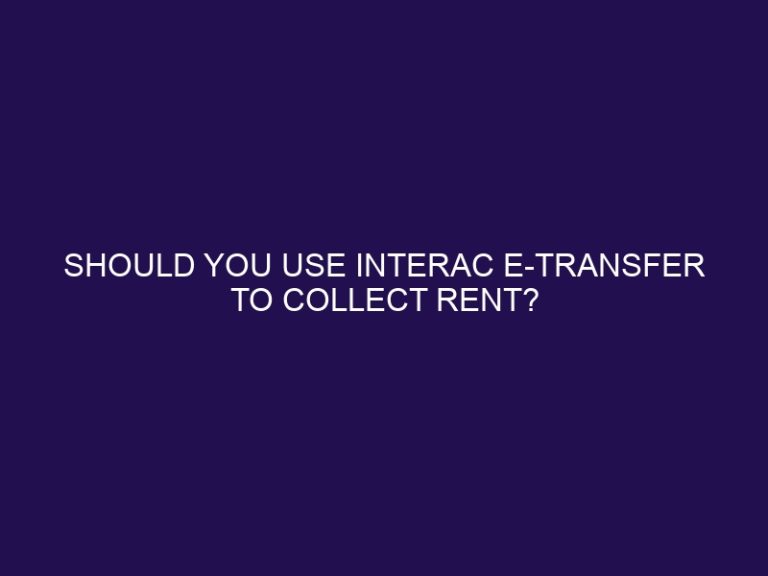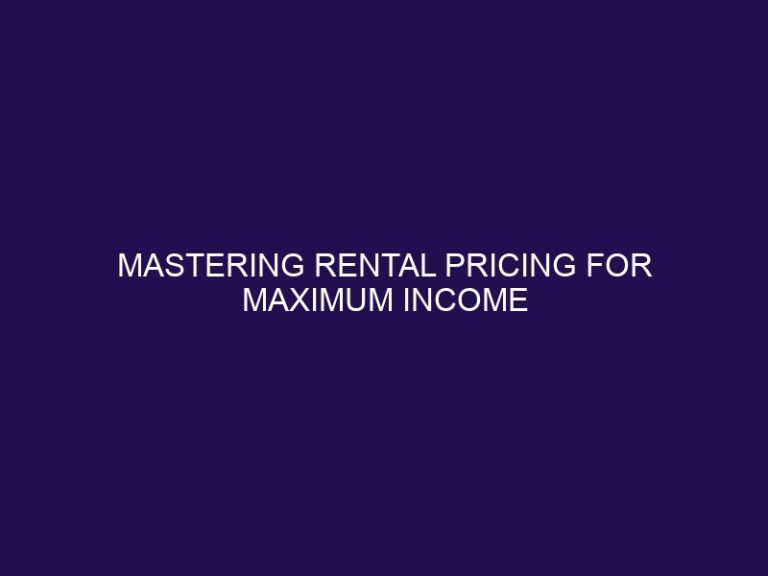Adapting to Market Changes: Essential Tips for Property Managers
In today’s dynamic real estate market, property managers face ever-changing challenges in reaching and retaining tenants. From showcasing desirable amenities to leveraging the power of digital marketing, staying ahead of the curve is essential.
In this comprehensive guide, we’ll explore a range of strategies designed to help property managers adapt to market changes and elevate their marketing efforts. From highlighting community and in-unit amenities to managing online reputation and understanding the importance of marketing, we’ll cover everything you need to know to thrive in the competitive property management landscape.
Whether you’re a seasoned professional or just starting out, this article is packed with valuable insights to help you navigate the evolving market with confidence.
Key Takeaways:
Adapting to Market Changes: Tips for Property Managers
As property managers navigate the dynamic landscape of real estate, adapting to market changes is crucial for sustained success and growth in the industry.
Today’s real estate market is characterized by rapid shifts in consumer preferences, advancements in technology, and evolving regulations. Property managers must stay attuned to these changes and be agile in their approach to meet the demands of modern tenants and property owners.
Embracing digital tools and automation is essential to streamline operations, improve efficiency, and deliver exceptional customer service. Leveraging data analytics and market insights can provide a competitive edge, allowing property managers to make informed decisions and optimize their portfolio performance.
Showcasing What Prospects Care About
In the competitive realm of property management, showcasing amenities and features that resonate with prospective tenants is a pivotal aspect of successful marketing strategies.
Highlighting Community & In-Unit Amenities
Emphasizing the diverse range of community and in-unit amenities available within a property is a strategic approach to capture the interest of potential tenants and create a compelling value proposition.
Showcasing amenities that cater to the lifestyle preferences of tenants can significantly enhance the appeal of a property. By integrating customer feedback, property managers and real estate agents can gain valuable insights into the specific needs and desires of their target audience. This enables them to tailor the offerings to align with these preferences, thereby attracting and retaining tenants more effectively.
Leveraging digital marketing strategies to highlight these amenities reinforces a property’s unique selling points, positioning it favorably in a competitive real estate market.
Promoting Proptech
The integration and promotion of innovative proptech solutions can significantly enhance the appeal of a property management business, offering modern conveniences and efficiency to both tenants and property managers.
Embracing proptech advancements has become imperative in the contemporary real estate landscape. Technology plays a pivotal role in streamlining operations, amplifying user experience, and optimizing resource allocation. By leveraging proptech, property managers can automate routine tasks, such as maintenance requests and rent collection, enabling them to focus on strategic decision-making and tenant satisfaction.
Furthermore, proptech facilitates better communication and transparency between property owners, managers, and tenants, fostering a conducive environment for long-term relationships and sustainable growth. It also offers data-driven insights that give the power to well-considered choices, leading to improved property performance and higher returns on investment.
Utilizing Content Marketing
Content marketing serves as a dynamic avenue for property managers to engage with their audience, deliver valuable insights, and establish a robust online presence in the competitive real estate landscape.
Creating Blogs, Infographics, and Videos
Producing a diverse array of content formats, including blogs, infographics, and videos, allows property managers to deliver informative and engaging narratives that resonate with their target audience.
With blogs, property managers can provide in-depth insights into market trends, property management tips, and industry news, optimizing them for SEO to increase visibility in search results.
Infographics are effective in visually presenting statistical data, comparative analyses, and property features, creating easily digestible content for the audience.
Videos, when enriched with SEO optimized titles, descriptions, and tags, offer immersive virtual tours, interviews with tenants, and neighborhood spotlights, fostering a stronger connection with potential clients.
Implementing Marketing Emails
Utilizing targeted marketing emails enables property managers to directly engage with prospects and tenants, delivering personalized content and updates that cater to their specific needs and preferences.
By leveraging email marketing as part of their strategy, property managers can create a direct line of communication with their audience, fostering customer relationships and enhancing customer engagement. Through segmenting their contact lists and tailoring content based on the audience’s preferences, property managers can ensure that their digital marketing efforts are focused and relevant.
Integrating email campaigns with other digital marketing channels, such as social media and blogs, helps in maintaining a cohesive and consistent brand presence across various online platforms.
Outreach Marketing with Gift Bundles
Implementing outreach marketing initiatives, such as offering gift bundles to potential tenants, allows property managers to establish meaningful connections and foster a sense of community engagement, adapting to evolving industry changes.
Marketing to Existing Residents
Engaging with existing residents through targeted marketing initiatives fosters tenant satisfaction and retention, allowing property managers to adapt to evolving industry changes while leveraging customer feedback and loyalty.
Managing Online Reputation
Maintaining a positive online reputation is essential for property managers in the digital age, requiring proactive management of feedback and visibility on review platforms such as Yelp and Google Business.
Responding to Reviews (Positive and Negative)
Engaging with both positive and negative reviews through thoughtful responses is a fundamental aspect of maintaining and enhancing the online reputation of a property management business.
Regarding reputation management, actively participating in conversations with customers creates a sense of transparency and trust. Addressing negative feedback demonstrates a commitment to resolving issues and improving customer experiences, while responding to positive reviews reinforces the value placed on customer satisfaction.
Leveraging customer feedback in digital marketing strategies can have a significant impact on brand perception and customer acquisition. By integrating customer testimonials and positive feedback into promotional materials and social media content, property management businesses can effectively showcase their strengths and build credibility.
Incentivizing Current Residents for Reviews
Offering incentives to current residents for providing reviews can enhance a property management business’s online reputation, encouraging genuine feedback and strengthening community engagement.
By providing incentives such as discounts on rent or community perks, property management companies can motivate residents to share their experiences, creating a positive online reputation. This not only attracts potential tenants but also boosts search engine rankings and overall digital marketing efforts.
Additionally, tenant satisfaction improves as residents feel valued and heard, leading to higher retention rates and positive word of mouth. The community involvement increases, fostering a supportive and connected living environment.
Using Customer Reviews in Marketing
Leveraging positive customer reviews as a part of marketing efforts showcases the trust and satisfaction associated with a property management business, reinforcing its online reputation and credibility.
By incorporating customer reviews into their marketing strategies, property management businesses can create a powerful impact on their brand’s credibility and customer perceptions. It not only serves as a testament to the quality of services offered but also enhances digital marketing initiatives by providing authentic, user-generated content.
Integrating customer feedback into marketing campaigns is an effective way to strengthen a company’s online reputation management. These reviews act as real-time endorsements, building trust and influencing potential clients’ decisions, thereby adding value to the business’s reputation in the digital landscape.
Enhancing Social Media Presence
A robust social media presence enables property managers to engage with a diverse audience, adapt to changing trends, and resonate with modern renters, leveraging platforms like TikTok to foster meaningful connections.
Utilizing social media effectively in property management encompasses a multi-faceted approach. It involves creating compelling content that appeals to Gen Z renters who are increasingly turning to digital platforms for their property search. With the rise of visual-focused platforms, such as TikTok, property managers can showcase properties through engaging videos and interactive content, creating a captivating experience for prospective tenants and establishing a strong digital presence.
Through strategic use of targeted digital marketing, property managers can elevate brand visibility, promote listings effectively, and engage with a broader audience, ultimately maximizing the potential of social media in the property management landscape.
Developing Business Personality
Developing a distinctive business personality on social media platforms allows property managers to establish a unique identity, engage with their audience, and create a memorable brand presence in the real estate market.
This process involves crafting tailored content that resonates with potential property buyers and renters, showcasing the expertise and personalized service offered. By communicating transparently and promptly addressing queries, property managers can develop trust and credibility, which are crucial for fostering long-term relationships in the real estate industry.
Leveraging digital marketing strategies such as targeted advertising, visually appealing listing presentations, and virtual property tours can enhance visibility and attract a wider audience.
Engaging on TikTok
Engaging with the dynamic audience on TikTok presents property managers with an opportunity to connect with Gen Z renters, showcase property features, and create engaging content that resonates with modern tenants.
TikTok, with its rapidly growing user base, offers property managers a compelling platform to reach and engage with the tech-savvy Gen Z renters who are increasingly seeking visually appealing and authentic content.
By harnessing TikTok’s features such as short-form videos, challenges, and trends, property managers can creatively highlight property amenities, local attractions, and community events to capture the interest of potential tenants.
Leveraging TikTok’s algorithm-driven content discovery and engagement, property managers can craft strategic digital marketing campaigns that maximize visibility and brand exposure among the sought-after demographic.
Utilizing User-Generated Content
Leveraging user-generated content on social media platforms give the power tos property managers to amplify tenant experiences, foster community engagement, and curate authentic narratives that resonate with a broader audience.
By utilizing the strength of user-generated content, property managers can strengthen their digital presence and build trust within their community. Encouraging tenants to share their experiences and thoughts through social media platforms creates an inclusive environment where their voices are heard and valued.
User-generated content plays a pivotal role in establishing brand authenticity. Authentic narratives shared by tenants provide a genuine glimpse into life at a property, allowing prospective tenants to form a realistic image and fostering a sense of transparency.
From a digital marketing standpoint, user-generated content serves as a potent tool. Property managers can strategically leverage this content to showcase the unique features of their properties, humanize their brand, and enhance their online visibility. This organic approach not only drives engagement but also contributes to the overall community involvement and satisfaction of tenants.
Practicing Social Listening
Engaging in social listening enables property managers to gain valuable insights, understand tenant sentiments, and proactively respond to emerging trends and concerns within the real estate community.
Social listening plays a pivotal role in property management, as it allows managers to monitor online conversations, reviews, and comments related to their properties and services. By analyzing this data, property managers can gauge customer feedback, identify recurring issues, and make informed decisions to enhance tenant satisfaction and retention.
Moreover, social listening fosters community engagement by enabling managers to participate in relevant discussions and address inquiries or grievances promptly. Through active interaction, property managers build trust and credibility within the real estate community, ultimately strengthening their brand reputation and rapport with current and prospective tenants.
The insights gathered from social listening can significantly influence digital marketing strategies. By understanding the preferences, concerns, and interests of tenants and potential clients, property managers can tailor their online content, advertising campaigns, and communication efforts to resonate effectively with their target audience, ultimately leading to improved lead generation, conversions, and brand visibility.
Effective Unit Staging
Implementing effective unit staging strategies elevates the appeal of properties, catered to the preferences of potential tenants, and enhances marketing endeavors for property management businesses like Home Constructions Pvt Ltd.
Utilizing Guest Cards
The utilization of guest cards facilitates seamless communication and personalized interactions with potential tenants, aligning with the customer-centric approach of property management businesses like Absalon & Co.
Understanding the Importance of Marketing for Property Managers
Recognizing the significance of marketing in the realm of property management is essential for adapting to evolving industry dynamics and catering to the diverse needs of tenants and property managers, aligning with the business philosophy of real estate businesses like BIM.
Frequently Asked Questions
What is meant by “adapting to market changes” as a property manager?
Adapting to market changes refers to the ability to adjust your property management strategies in response to shifts in the real estate market. This includes changes in rental prices, tenant demand, and other market factors.
Why is it important for property managers to adapt to market changes?
Adapting to market changes is crucial for property managers to stay competitive and maintain profitability. Failing to adapt can result in vacancies, rental price decreases, and ultimately, a decline in the value of your properties.
How can property managers stay informed about market changes?
To stay informed, property managers should regularly research market trends and stay up-to-date with industry news. Networking with other property managers and real estate professionals can also provide valuable insights.
What are some effective strategies for adapting to market changes?
Some strategies for adapting to market changes include adjusting rental prices, targeting specific tenant demographics, offering incentives or discounts, and improving property amenities or services.
How can property managers communicate market changes to their tenants?
Effective communication is key when it comes to informing tenants about market changes. Property managers can send out newsletters or email updates, post notices in common areas, and hold informational meetings to keep tenants informed.
What should property managers do if they are struggling to adapt to market changes?
If you are having difficulty adapting to market changes, it may be helpful to seek advice from a real estate professional or attend industry workshops or seminars. It is also important to continually reassess and adjust your strategies as needed.







